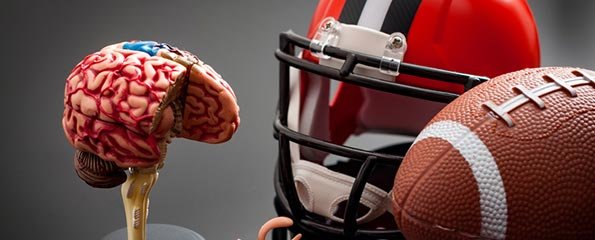New international guidelines for childhood sport-related concussion
Australian researchers from the Murdoch Children’s Research Institute’s (MCRI) have led a review to evaluate evidence regarding the management of sport-related concussion (SRC) in children and adolescents resulting in new international guidelines for childhood concussion.
SRC in children is very common. Around four million children are estimated to present annually to emergency departments (EDs) worldwide with concussion. This suggests that approximately 33 million children worldwide sustain a concussion annually
The International Concussion in Sport Group (CISG) first published a summary and agreement statement on the management of SRC in 2001, but this did not include recommendations for the management of concussion in children and adolescents.
The review analysed published evidence on children and adolescents with SRC and was conducted to inform the 5th International Consensus Conference on Concussion in Sport in Berlin in 2016.
Researchers from the MCRI, USA and Canada performed the review which looked at a variety of factors including which age groups should be managed differently from adults and which symptoms and signs are most accurate for the diagnosis of concussion in children. They also looked at what is the ‘normal’ duration for recovery of concussion in children, how long children with concussion should rest and when they can safely return to school and sport.
“There were a number of key factors that were already known but also several new findings that resulted from the review”, the study’s lead author, Professor Gavin Davis from MCRI said.
What is already known?
- The effects of sport-related concussion (SRC) in children are different from adults and therefore need to be managed differently
- Children may take longer to recover from SRC than adults
- Return to school is a priority in the management of children following SRC
The guidelines, published in the British Journal of Sports Medicine, resulted in the following new recommendations:
- Children and adolescents are expected to take up to four weeks to recover following SRC
- The widespread routine use of baseline computerised neuropsychological testing is not recommended in children and adolescents
- Children only require a brief period of rest followed by gradual symptom-limited physical and mentally stimulating activities
- All schools be encouraged to have a concussion policy and should offer appropriate support to students recovering from SRC
- Children and adolescents should not return to sport until they have successfully returned to school, however early introduction of symptom-limited physical activity is appropriate
Professor Davis said the management of SRC in children requires special models that are suitable for the developing child.
“The lack of studies that are specific to children, especially younger children, need to be addressed as a priority, with the expectation that future International Concussion in Sport Group consensus meetings will have sufficient studies to review, that are age-specific, of high quality and with a low risk of bias. Until such time, this review documents the best available evidence for the management of SRC in children and adolescents,” Professor Davis said.
(Source: Murdoch Children’s Research Hospital, British Journal of Sports Medicine)
Dates
Tags
Created by:

 Login
Login














